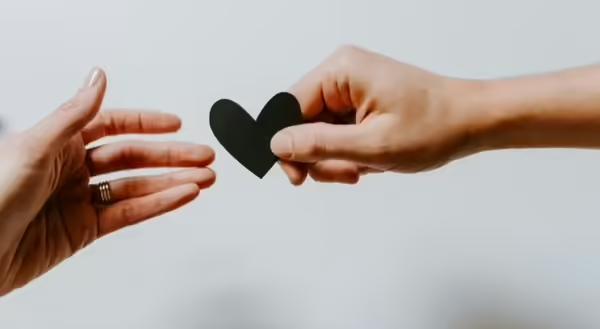
The month of February has many holidays and observances focusing on kindness, love, health, and well-being. Two of these observances are Random Acts of Kindness Day, held on February 17, and Random Acts of Kindness Week, held February 9-15. These annual events are focused on the importance of bringing kindness to everyday interactions and spreading joy.
Benefits of kindness
Research shows that practicing kindness can have many benefits for health and well-being. Being kind to others helps build social connections, decrease loneliness, and can strengthen relationships (Curry et al., 2018). Kind acts boost happiness in both the person giving and the person receiving the act of kindness (Kumar & Epley, 2023). Acts of kindness can also help to reduce stress by briefly shifting focus away from personal challenges or problems and instead focusing on the joy of doing something nice for another person (Cregg & Cheavens, 2023). There is also evidence that kindness may boost immunity, reduce anxiety, and decrease blood pressure (Rowland, 2017).
Incorporating kindness into your daily routine
While being kind may seem straightforward, in the hustle and bustle of life it can sometimes be easy to be unkind, especially when hurried, overburdened, distracted, or feeling down. Fortunately, we can cultivate kindness towards others and ourselves through small, intentional acts of kindness. Even small acts of kindness can have a big impact. According to Kumar and Epley (2023), people who receive acts of kindness are likely to pay that kindness forward to others, so the impact of an initial act of kindness can be much greater than you realize!
Here are seven ideas from the Random Acts of Kindness Foundation for adding more kindness into your life:
- Make a gratitude call to someone who has helped you
- Support a local business
- Pick up litter in your neighborhood
- Offer to help someone without being asked
- Donate your time or money to an organization you care about
- Send a kind text to someone
- Practice self-care
Practicing self-care is a great way to be kind to yourself and there are many different forms of self-care you can try, such as:
- Try meditation, like this Loving-Kindness Meditation, to offer compassion to yourself and others
- Say positive affirmations or give yourself a compliment (make a list of your strengths)
- Take care of yourself: exercise regularly, eat well, and get plenty of sleep
- Do something you enjoy by starting a new hobby or reconnecting with an old hobby
This month, choose a few acts of kindness to add to your daily routine and encourage those around you to do the same! For more inspiration, check out these Kindness Ideas from the Random Acts of Kindness Foundation.
References:
Curry, O. S., Rowland, L. A., Van Lissa, C. J., Zlotowitz, S., McAlaney, J., & Whitehouse, H. (2018). Happy to help? A systematic review and meta-analysis of the effects of performing acts of kindness on the well-being of the actor. Journal of Experimental Social Psychology, 76, 320–329. https://doi.org/10.1016/j.jesp.2018.02.014
Kumar, A., & Epley, N. (2023). A little good goes an unexpectedly long way: Underestimating the positive impact of kindness on recipients. Journal of Experimental Psychology: General, 152(1), 236–252. https://doi.org/10.1037/xge0001271
Cregg, D. R., & Cheavens, J. S. (2023). Healing through helping: An experimental investigation of kindness, social activities, and reappraisal as well-being interventions. The Journal of Positive Psychology, 18(6), 924–941. https://doi.org/10.1080/17439760.2022.2154695
Rowland, L. (2017, November 13). Kindness—Society's golden chain. Psychologist, 31, 30–35. Retrieved February 10, 2025, from https://www.bps.org.uk/psychologist/kindness-societys-golden-chain